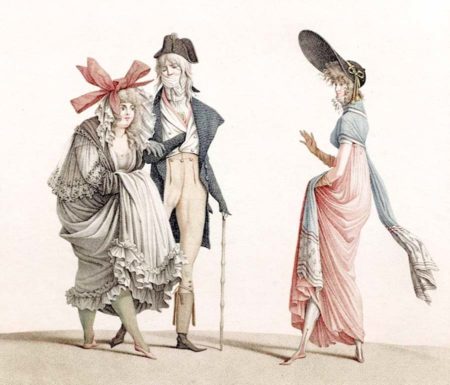I have commented many times on women in Paris who in their day became very famous for their exploits inside and outside the bedroom. (Click here to read, Cyndi Lauper and the Naked Princess, and here to read Grace Under Fire, and here to read American “Grande Horizontale” and Nazi Collaborator.) These courtesans traveled in the highest levels of society and had affairs with well-known politicians, soldiers, authors, and wealthy men. One common trait they shared was a lack of shyness. Like many of today’s celebrities, these women knew their livelihood relied on publicity.
Our subject today, Fortunée Hamelin, is the “poster child” for what was considered outrageous behavior at the time (today, I suppose her antics would seem quite docile). She entered Parisian society during the final years of the French Revolution and gained her notoriety during the Directoire period (1795−1799). Fortunée became the “toast” of Napoléon’s empire and lived through the restoration of the French monarchy, and the subsequent establishment of the Second Republic.
Fortunée was a high-spirited, intelligent, and beautiful woman. She was considered one of the free-wheeling Merveilleuse, or loosely translated as “Marvelous of the Directory.” She was also called the “greatest rascal in France.” Today, I have no doubt that Fortunée would be a regular in celebrity publications as well as social media.

